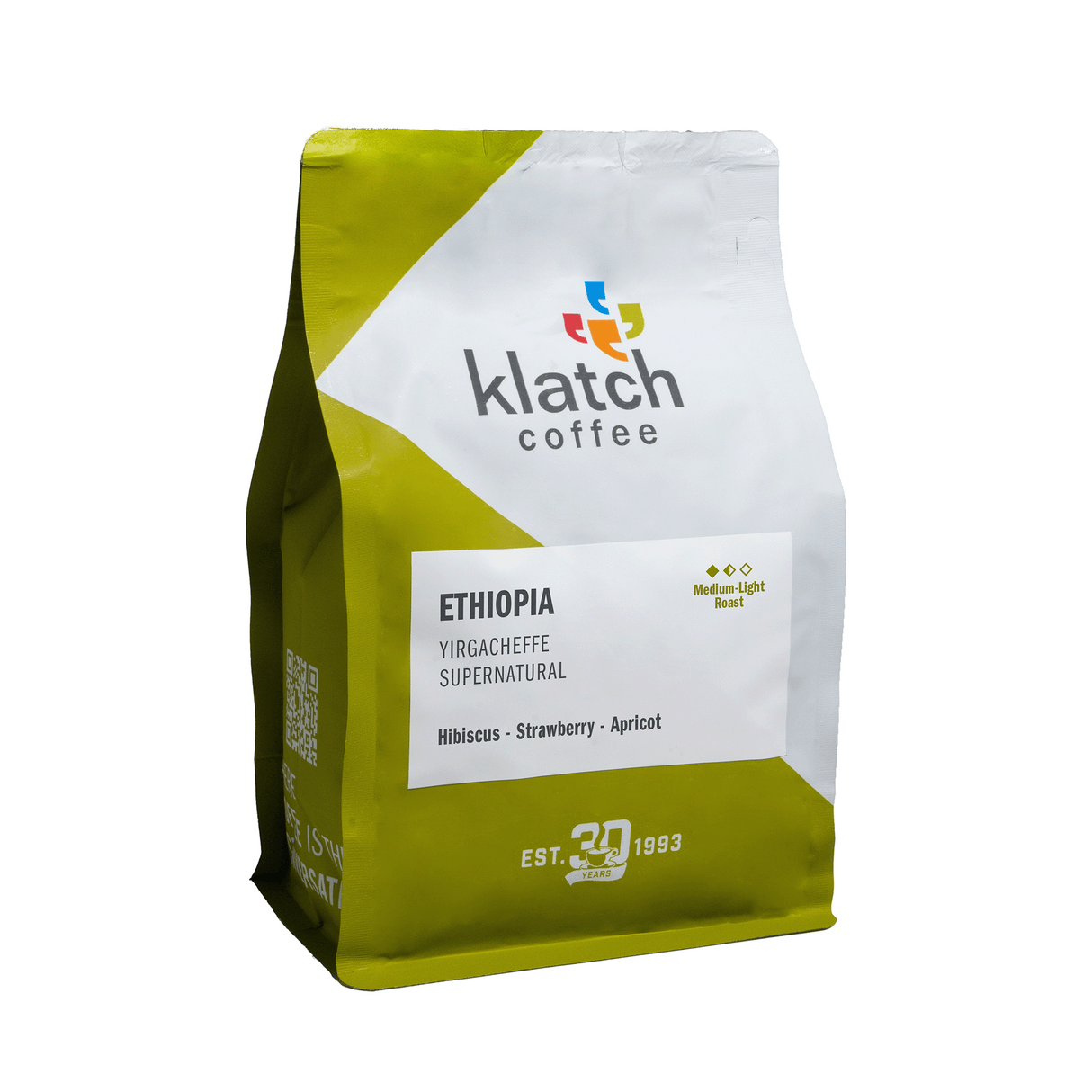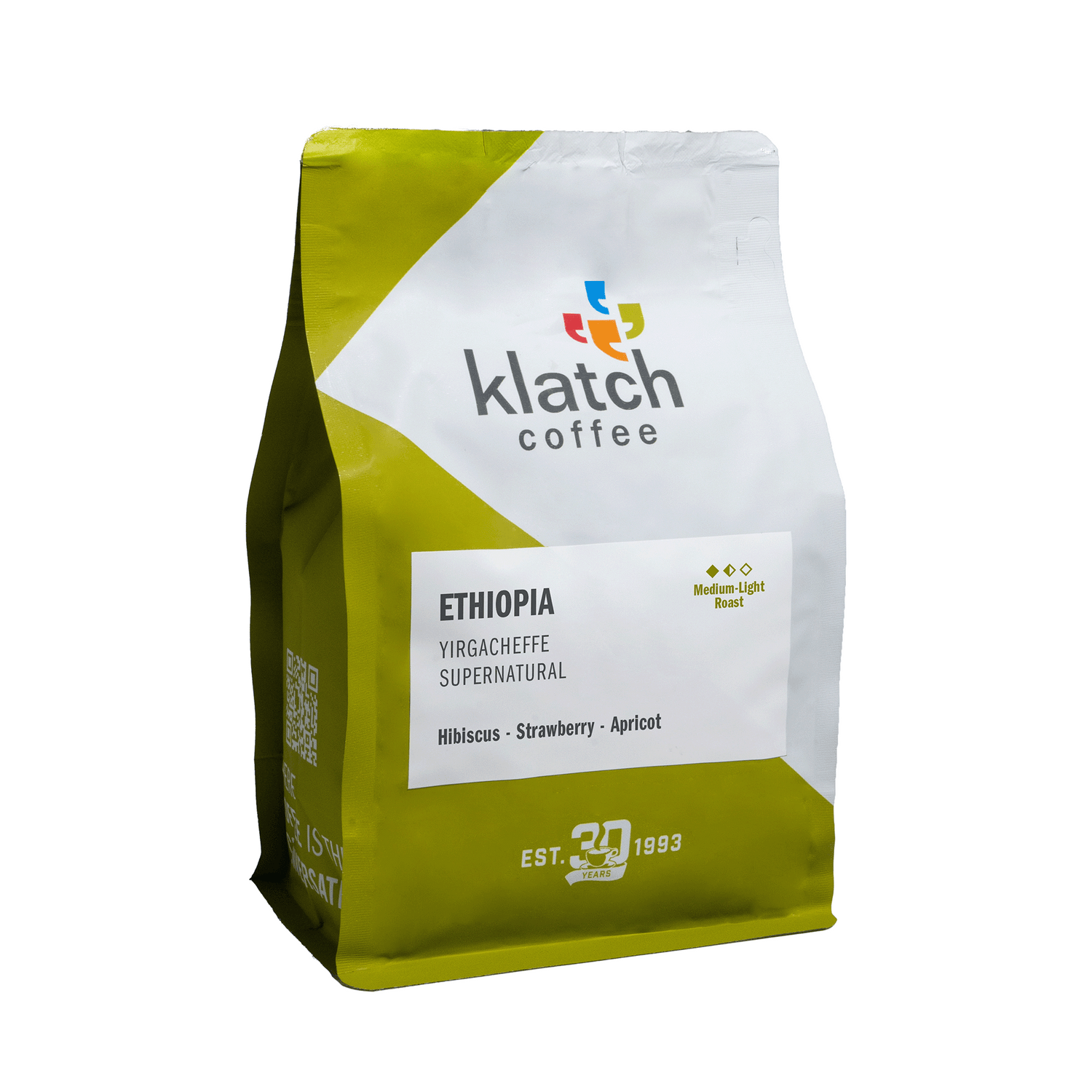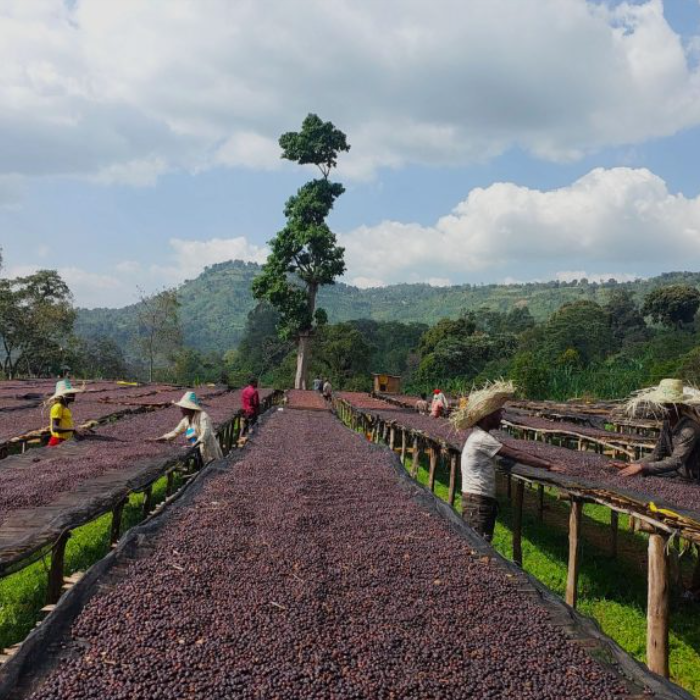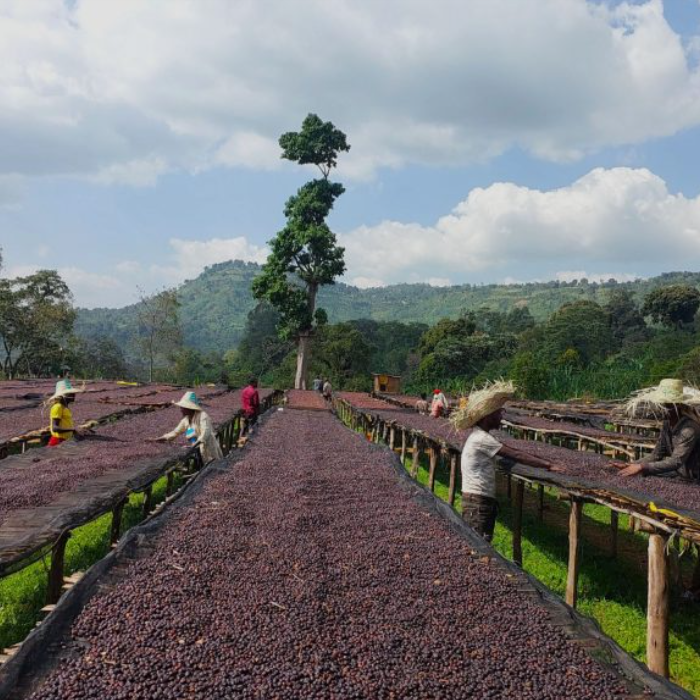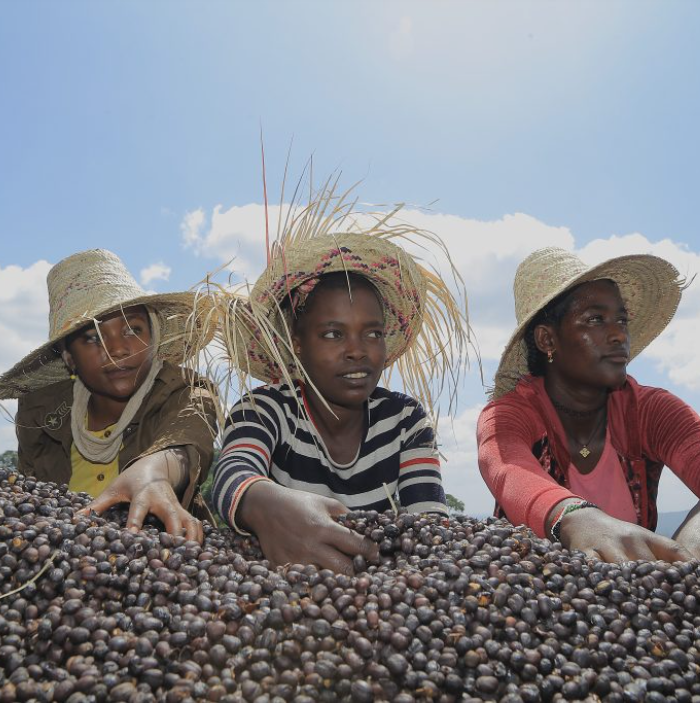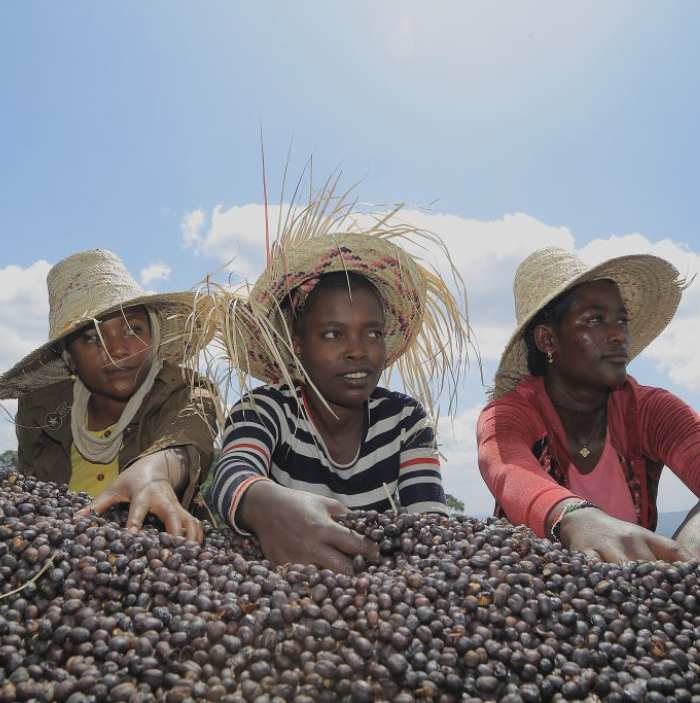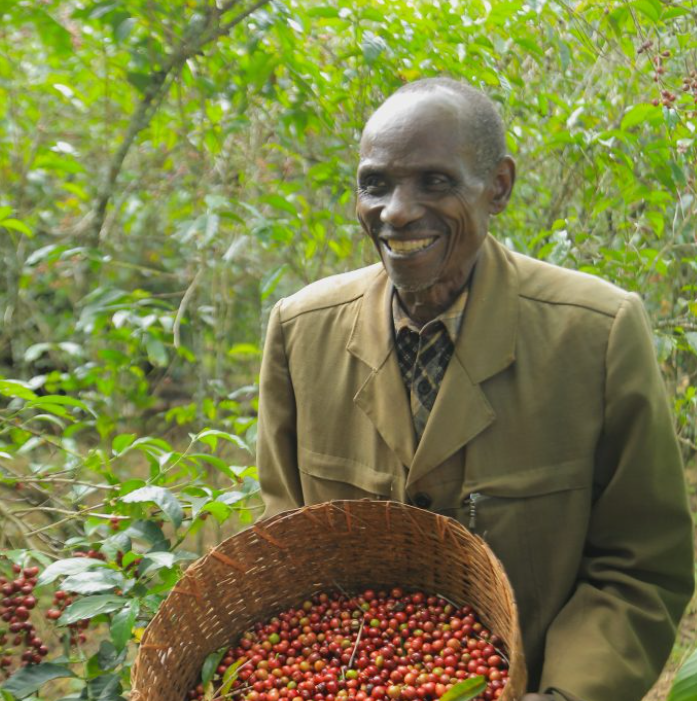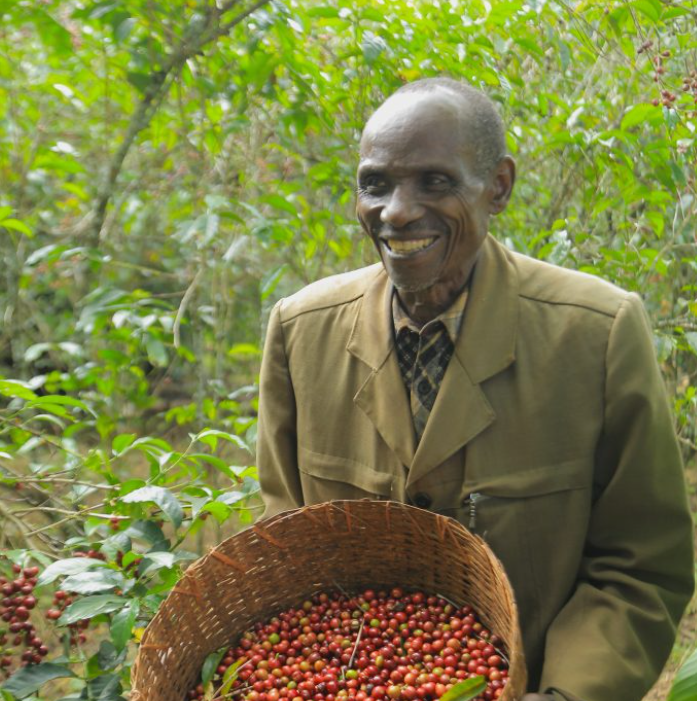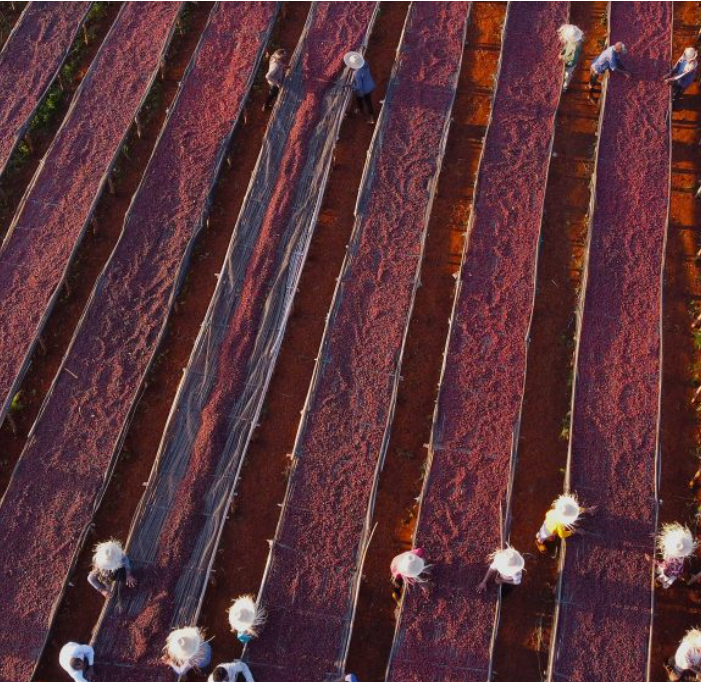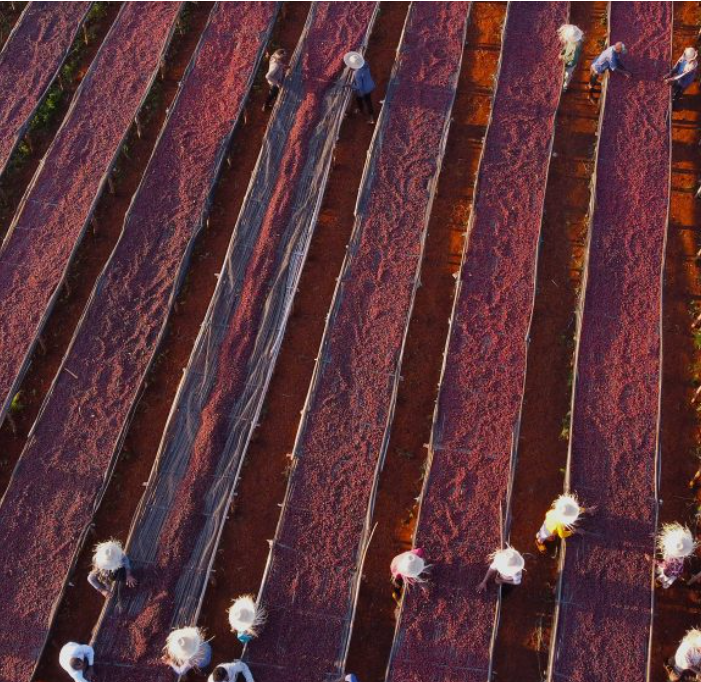Ethiopia Yirgacheffe Supernatural
Roasted to Order
Roasted to Order
Always roasted to order, so you receive the freshest coffee possible.
Free shipping on orders over $50
Free shipping on orders over $50
Enjoy free shipping on all $50 orders.
Starting a club subscription? Shipping on club orders is always free, regardless of order size.
Description
Description
Savor our Ethiopia Yirgacheffe Supernatural as a rich espresso—bursting with strawberry jam notes, delicately layered with hibiscus and apricot.
Espresso Extraction
Dose: 19.5 g (double)
Temperature: 204°F [95.55°C]
Time: 28 seconds total (3 second pre-infusion)
Out: 38 g
Specifications
Specifications
-
Roast Level
-
VarietalHeirloom
-
Process
-
Farm
-
Farmer
-
Region
-
Mouthfeel
Growing Coffee in Ethiopia
Growing Coffee in Ethiopia
Supernatural Process
Supernatural Process
Region: Banko Chelchele Kebele, Chelchele Woreda, Gedeo Zone
Region: Banko Chelchele Kebele, Chelchele Woreda, Gedeo Zone
Payment Methods
Quick, easy, and secure
Klatchcoffee.com accepts Visa, Mastercard, PayPal, and Apple Pay.
